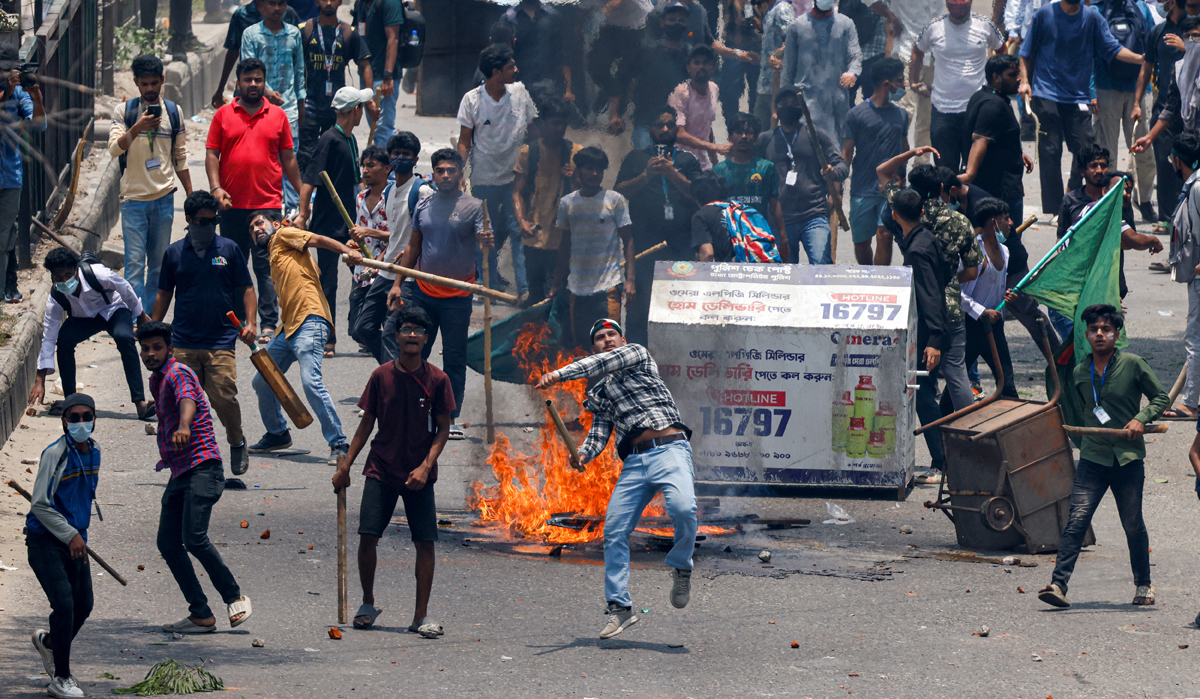As many as 19 people have been killed so far since the nationwide protests that erupted in Bangladesh demanding reforms of the quota system for government jobs.
University students in Dhaka and other cities have been holding rallies for days against the system that reserves a percentage of government jobs for relatives of 1971 war heroes.
Nine deaths were reported in Dhaka alone, while deaths were also reported in Savar and Madaripur district.
Amid the widespread protests, the authorities had shut down the metro rail in Dhaka and the train services were also affected. The Dhaka Medical College Hospital has reported two more deaths on Thursday in the clashes that erupted between protesters and police. Reportedly, a journalist is among those killed in the clashes.
Internet and mobile network services were shut down to diffuse the situation in the country. Border Guard Bangladesh personnel were deployed across the country to maintain law and order.
What is the Bangladesh quota system?
The quota system was first introduced in 1972 by Sheikh Mujibur Rehman. According to the system, a percentage of government jobs were reserved for children and relatives of those who fought and died in the 1971 War of Independence from Pakistan.
Also, about 56 per cent of the highly sought jobs were reserved for specific groups, with the other 44 per cent considered "merit" based.
Though the quotas were deemed illegal and abolished in 2018, it was reinstated on June 5, reserving 30 per cent of government jobs for children of “freedom fighters”. The system was challenged and the SC is set to hear an appeal on August 7.
With high rates of unemployment, protesters have demanded a merit-based system that is fair to all.
Amid the raging protests, the Bangladesh Ministry of Education announced the postponement of all Higher Secondary Certificate (HSC) and equivalent exams scheduled for July 21, 23, and 25.
According to the exam committee, the decision was made due to unavoidable circumstances.


